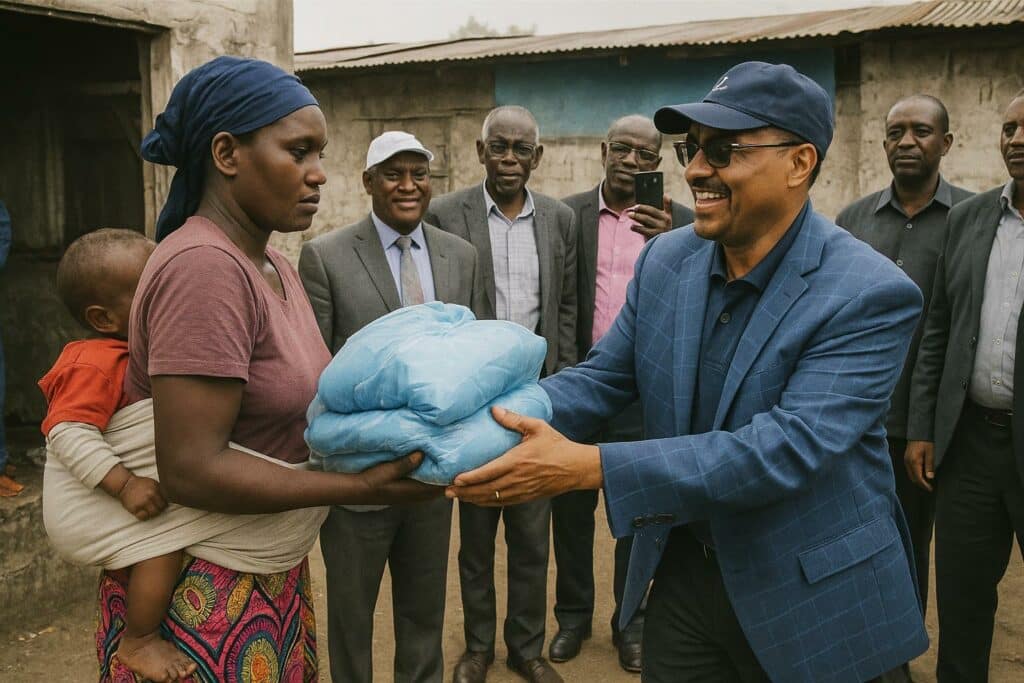Strategic supervision bolsters malaria drive
Under the stewardship of the Catholic Relief Services (CRS) Resident Representative in the Republic of Congo, a high-level delegation has just completed an intensive supervisory tour of Pointe-Noire, Kouilou, Niari and Bouenza. The field mission, conducted from 10 to 11 October 2025, assessed the roll-out of the second phase of the mass distribution of Long-Lasting Insecticidal Nets (LLINs), locally known as MILDAs. The initiative forms part of the seventh Global Fund financing cycle devoted to malaria control and health-system strengthening, for which CRS is the principal recipient.
Each visit opened with a courtesy call on the departmental authorities, underlining the pivotal role of local governance in the public-health architecture championed by Brazzaville. In Kouilou and Pointe-Noire the delegation took part in official launch ceremonies that symbolically linked national strategy to community-level action.
Digital innovation accelerates field oversight
A distinctive feature of the mission was the systematic deployment of the Congo DIGIT application. Designed to facilitate real-time data capture and geo-referenced supervision, the platform enabled CRS and departmental health teams to correct operational gaps immediately. By reinforcing staff familiarity with the tool, supervisors ensured that distribution points reported stock levels, household coverage and performance indicators with unprecedented granularity. Such digital accountability is now regarded within the Ministry of Health and Population as a non-negotiable pillar of programme integrity and transparency.
Community mobilisation and last-mile logistics
Beyond algorithmic dashboards, the supervisory teams focused on human factors that make or break a preventive campaign. Conversations with neighbourhood leaders, mothers’ associations and distribution agents revealed a strong appetite for the nets but also underscored the need for sustained behavioural messaging on correct nightly usage. Warehouse inspections, stretching from urban depots to remote communal stores, confirmed that the physical flow of bales kept pace with the digital traceability promoted by Congo DIGIT.
CRS officials praised the resilience of ‘heroes of the field’—volunteer distributors who often traverse difficult terrain to reach isolated households. Their commitment, echoed by departmental health directors, convinced the delegation that the operation’s logistics chain remains robust despite climatic challenges and fluctuating road conditions.
Governance and public-health synergy
The mission illustrated the added value of close coordination between an international faith-based organisation and the Congolese state apparatus. By aligning supervisory calendars, the National Malaria Control Programme (PNLP) and CRS avoided duplication and leveraged shared vehicles, warehouses and data platforms. Prefects welcomed this partnership as an example of subsidiarity in action: technical guidance flowed from Brazzaville, resources from international partners, and legitimacy from local authorities who mobilise communities.
In his end-of-tour address, the CRS Resident Representative expressed ‘profound gratitude’ to each stakeholder, emphasising that the malaria response is most effective when anchored in the decentralised governance model promoted by the Congolese constitution. The acknowledgement resonated with departmental officials who view the campaign as both a health intervention and a test of administrative efficiency.
Key takeaways for stakeholders
First, the early adoption of Congo DIGIT has materially improved oversight, allowing supervisors to reconcile stock, coverage and performance data in near real time. Second, local authorities’ proactive involvement has fostered an environment in which distribution agents can operate with clear social licence. Third, field observations suggest that communication on net utilisation must continue well beyond the final delivery to households if epidemiological gains are to be secured.
Regulatory and funding lens
The present campaign falls under the seventh Global Fund financing cycle, whose grant agreements impose strict fiduciary and performance obligations. CRS, as principal recipient, remains accountable for meeting quantitative targets and adhering to Congolese public-procurement rules, thereby reinforcing the national framework for transparency and anti-corruption. The mission’s findings will feed into the joint performance review that both the Ministry of Health and international donors will use to steer future disbursements. By demonstrating tangible progress, the teams on the ground have safeguarded the fiscal credibility of a programme that cushions the national budget from additional malaria-related costs.

